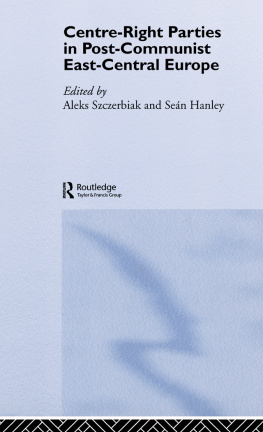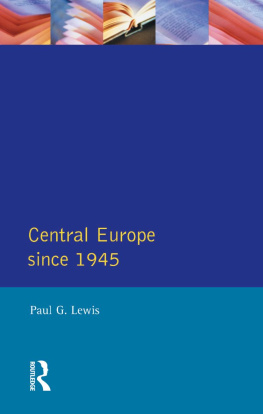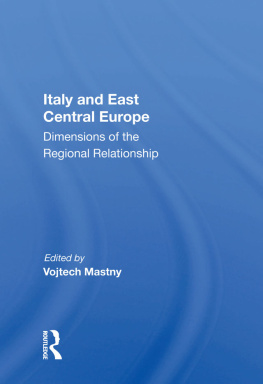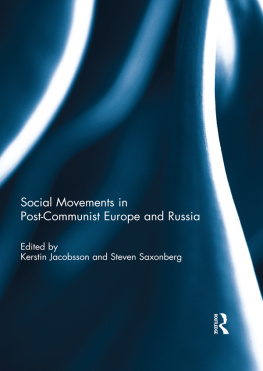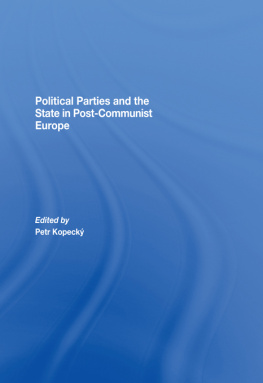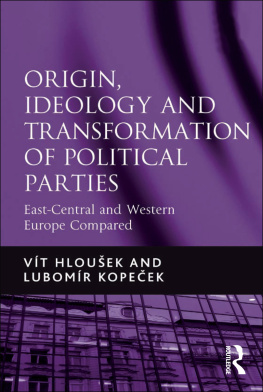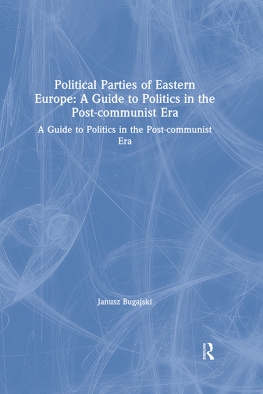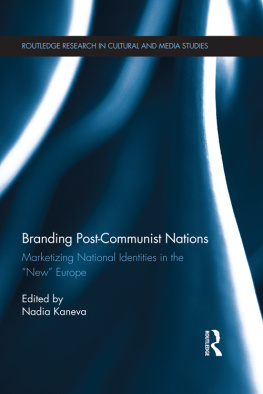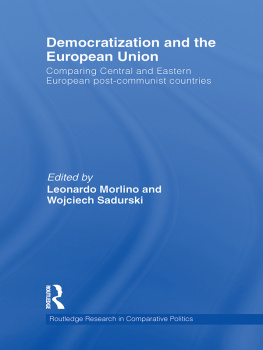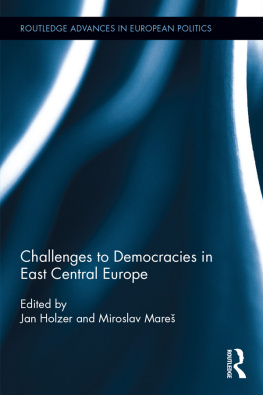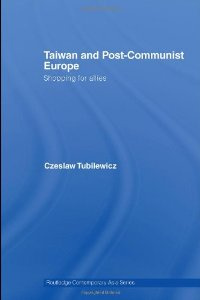Centre-Right Parties in Post-Communist East-Central Europe
This book is of profound importance for it is the first to cover the centre-right in post-communist Eastern Europe. It makes a vital contribution to the broader research agenda on the Central and East European centre-right by focusing on one specific question: Why strong and cohesive centre-right formations have developed in some post-communist states, but not others. It delves into the attempts to develop centre-right parties after 1989 in four nations: the Czech Republic, Hungary, Poland and Slovakia.
The authors of the case studies use a common analytical framework to analyse and provide fascinating insights into the varying levels of cohesion in centre-right parties across the region.
This volume was previously published as a special issue of The Journal of Communist Studies and Transition Politics.
Aleks Szczerbiak is Senior Lecturer in Contemporary European Studies at the Sussex European Institute, University of Sussex, specialising in Central and East European politics.
Sen Hanley is Lecturer in East European Politics at the School of Slavonic and East European Studies, University College London. He has published a number of articles on both party development and the right of the Czech Republic.
Centre-Right Parties in Post-Communist East-Central Europe
Edited by
Aleks Szczerbiak and Sen Hanley
First published 2006 by Routledge
2 Park Square, Milton Park, Abingdon, Oxon OX14 4RN
Simultaneously published in the USA and Canada
by Routledge
270 Madison Avenue, New York, NY 10016
Routledge is an imprint of the Taylor & Francis Group
2005 Aleks Szczerbiak and Sen Hanley
Typeset in Times by Techset Composition Limited
All rights reserved. No part of this book may be reprinted or reproduced or utilised in any form or by any electronic, mechanical, or other means, now known or hereafter invented, including photocopying and recording, or in any information storage or retrieval system, without permission in writing from the publishers.
British Library Cataloguing in Publication Data
A catalogue record for this book is available from the British Library
Library of Congress Cataloging in Publication Data
A catalog record for this book has been requested
ISBN 0-415-34781-5
Contents
ALEKS SZCZERBIAK AND SEN HANLEY
SEN HANLEY
SEN HANLEY
ALEKS SZCZERBIAK
BRIGID FOWLER
TIM HAUGHTON AND MAREK RYB
PAUL G. LEWIS
Guide
Aleks Szczerbiak is Senior Lecturer in Contemporary European Studies at the Sussex European Institute, University of Sussex, specializing in comparative Central and East European politics. He is author of Poles Together? The Emergence and Development of Political Parties in Postcommunist Poland (2001).
Sen Hanley is Lecturer in East European Politics at the School of Slavonic and East European Studies, University College London. He has published a number of articles on party politics in the Czech Republic and is currently working on a book dealing with the rise and fall of the new Czech Right.
Brigid Fowler is a PhD candidate at the Centre for Russian and East European Studies (CREES), European Research Institute, University of Birmingham, where her research concerns the impact of domestic political factors on Hungary's EU accession process, focusing on the 1998-2002 government. She has been a Research Fellow at CREES and has published on aspects of Hungarian politics and EU enlargement.
Tim Haughton is Lecturer in the Politics of Central and Eastern Europe at the University of Birmingham. His main research interests are party politics in Eastern and Central Europe and the impact of European Union membership on the domestic politics of the region.
Marek Ryb is Assistant Professor of Political Science at Comenius University in Bratislava. His main research interest is party politics.
Paul G. Lewis is Reader in Central and East European Politics in the Faculty of Social Sciences at the Open University, where he specializes in comparative politics. He is the author of Political Parties in Post-Communist Eastern Europe (2000), editor of Political Development and Democratic Change in Post-Communist Europe (2001), and co-editor of Pan-European erspectives on Party Politics (2003) and Developments in Central and East European Politics 3 (2003).
ALEKS SZCZERBIAK and SEN HANLEY
Despite their importance in contemporary European politics, parties of the centre-right remain a strikingly under-researched area in both West European and post-communist Eastern European comparative politics. Compared with the voluminous literature on the left-wing communist successor parties or on the extreme right, little has been written on post-communist centre-right formations in terms of either empirical case studies or attempts to develop explanatory frameworks. The reasons for this paucity of research appear to be both pragmatic, reflecting the personal preferences and interests of individual researchers, and methodological, reflecting intrinsic problems of definition and comparison. Whereas communist successor parties, for example, constitute an easily identifiable bloc, defining who is on the centre-right from amid an array of nationalist, conservative, Christian, liberal and populist groupings is a much more difficult task. As Hanley notes later in this collection, in addition to the vague boundaries between far right and centre-right in the region, liberal and agrarian parties, which have been absorbed into consolidated centre-right blocs in most West European democracies, often appear as small 'centrist' groups in a post-communist context. Further unresolved questions concerning the origins of the post-communist centre-right; its social bases, ideologies and responses to the new challenges of Europeanization and globalization combine to make it a particularly rich, if complex, vein of comparative research that has so far gone largely unaddressed.
The Limits of Historical-Structural Explanation
Most comparative frameworks explaining the emergence of centre-right parties (and parties generally) in post-communist Europe, and national variations among them, stress broad structural and historical factors. The highly influential work of Kitschelt, for example, argues that the incomplete nature of social modernization in pre-communist Hungary and Poland and the coercive nature of their subsequent modernization under communism led to the conservation of populist, ruralist and conservative discourses and debates. These constituted a cultural and ideological reservoir for reconstituting the Right after 1989, but preserved the historical division with liberals committed to
Milada Anna Vachudov by contrast, plays down the differences identified by Kitschelt between the conservative and neo-liberal centre-right in Hungary, Poland and the Czech Republic, regarding both as 'moderate right'. She attributes the emergence of the 'moderate right' in some states in the region to the existence of strong organized opposition groups under communism, which, she claims, furnished the intellectual basis of such parties and the alternative elites for them. Conversely, she attributes the weakness of the moderate Right in states such as Slovakia, Bulgaria, Romania and Croatia to the weakness of such opposition which, she suggests, allowed former ruling parties or extreme nationalists to appropriate the nationalist discourses of the traditional pre-communist right and emerge as a dominant force.


